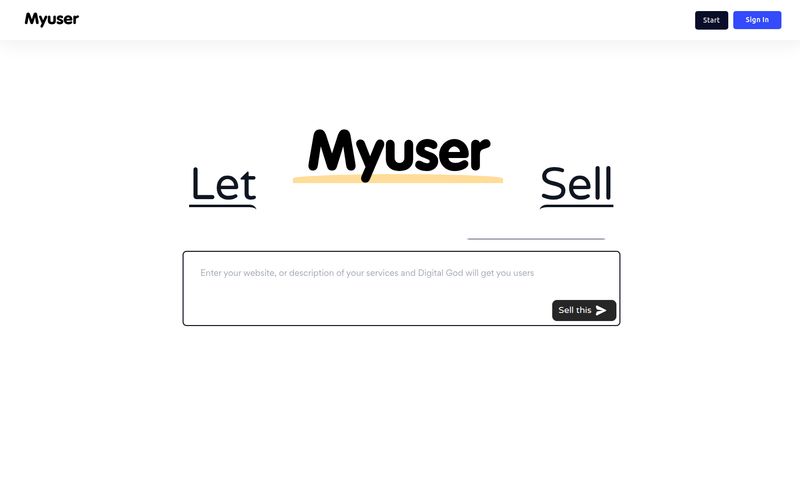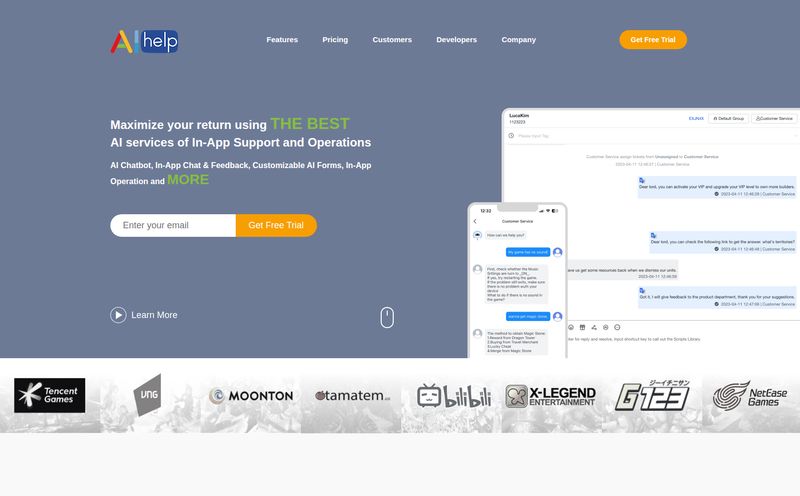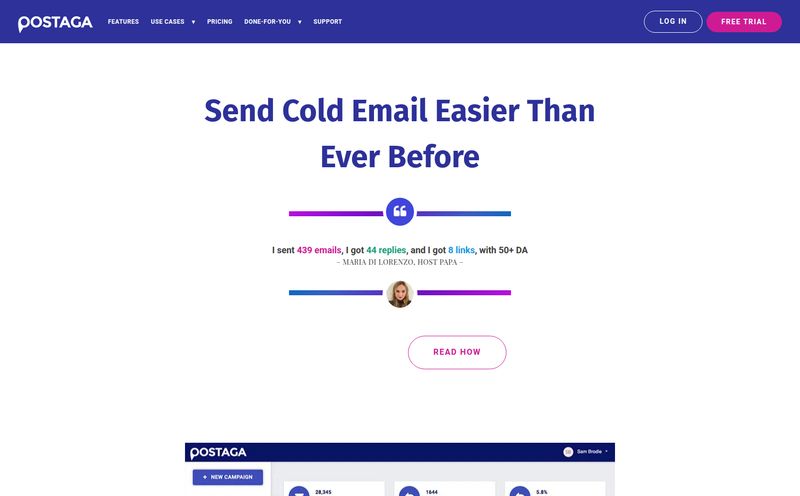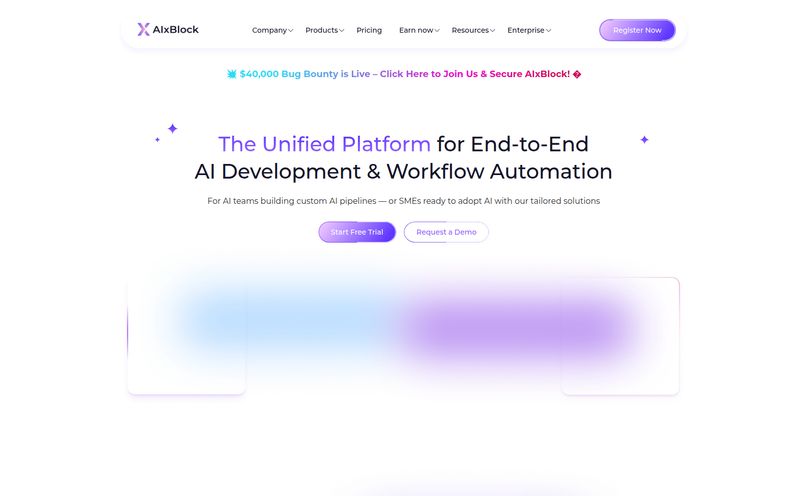As someone who's spent years swimming in the deep end of traffic generation and analytics, I've seen it all. We obsess over heatmaps, A/B test button colors into oblivion, and track every single click like it holds the secrets to the universe. But there's always been this... blind spot. This huge, gaping hole in our data story. I’m talking about phone calls.
For decades, voice conversations have been the dark matter of customer interaction. You know it’s there, you know it's incredibly valuable, but it’s mostly invisible and impossible to quantify. You might get call volume, maybe duration. But the content? The sentiment, the keywords, the actual customer needs expressed in their own voice? It's just floated off into the ether. A total black box. Well, I recently stumbled upon a tool that’s trying to light up that black box, and I have to say, I'm intrigued. It's called Callr, and it’s not just another company slinging phone numbers.
So, What Exactly is Callr? (Beyond the Buzzwords)
At its core, Callr is an API-first platform for integrating voice and SMS into your products and workflows. Okay, I know. That sounds like a dozen other services out there. But stick with me. Where things get interesting is in its mission: Turn conversations into actionable data. This isn't just about giving your app a "click-to-call" button. It's about giving that button a brain.
Think of it less like a telephone utility and more like an intelligence layer for your communications. Callr is built for developers, product managers, and marketers who look at a phone call and don’t just hear a voice, but see a rich source of untapped data. It's for people who want to understand why customers are calling, what problems they’re facing, and how happy (or unhappy) they are, all without manually listening to thousands of hours of recordings.
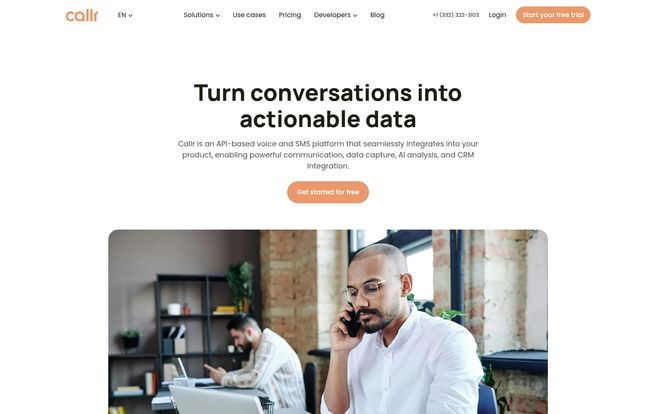
Visit Callr
The Features That Actually Matter: From Standard to Standout
Any communications API needs to nail the basics before it can get fancy. It's like a restaurant; I don't care how creative your deconstructed taco is if the tortilla is stale. Callr seems to understand this, breaking its features down into the foundational stuff and the real magic.
The Table Stakes: Solid Voice and SMS Fundamentals
First off, Callr provides all the tools you'd expect. You get a robust API (JSON-based, for all you tech folks) and webhooks to connect everything to your existing systems. You can do all the standard things like call forwarding, call recording, and sending/receiving SMS messages. One of the first things I look for is global reach. It's a big green flag, and Callr has it, with numbers available in over 220 countries. This tells me they're serious about infrastructure and not just a small-time operation. They own their network, with multiple data centers and state-to-state encryption, which gives me a bit more peace of mind about reliability and security.
The Game Changer: AI and Speech Analytics
Here’s where I started to really pay attention. This is the secret sauce. Callr isn't just recording your calls; it's actively listening with AI. This includes features like:
- Transcription: Turning spoken words into text. This is the first step, pretty standard, but essential for what comes next.
- Speech Analytics: This is the big one. It analyzes the conversation for things like sentiment. Was the customer happy, frustrated, neutral?
- Keyword Extraction: It can automatically pull out important terms. Imagine automatically tagging every call where "cancellation," "refund," or a competitor's name is mentioned. That’s powerful stuff.
- Call Scoring: You can create a custom scorecard to automatically rate interactions based on your own criteria. Did the agent mention the new promotion? Was the customer's problem resolved? It's like having a QA manager on every single call.
Suddenly, that 30-minute support call isn’t just a time entry in a log. It’s a structured data point that can tell you, "This customer was frustrated, mentioned our competitor twice, and was concerned about pricing." Multiply that by thousands of calls, and you have a real-time pulse on your entire customer base.
For the Devs: Serverless and Low-Code Magic
I have to geek out for a second here. One of the most compelling features, especially for lean teams, is something called Callr Actions. It's a serverless solution. If "serverless" just sounds like jargon, let me translate: it means you can build complex call logic without having to set up and manage your own server to run it. This is huge. It dramatically cuts down on development time and infrastructure headaches. It's the difference between building an entire kitchen from scratch and just plugging in a high-end, programmable oven. For businesses that want to move fast, this is a massive advantage.
Let's Talk Money: A Look at Callr's Pricing
Alright, the feature set is impressive, but what's it going to cost? The pricing page is pretty straightforward, which I appreciate. They have three main tiers.
| Plan | Price | Best For |
|---|---|---|
| Essential | €99 /month | Businesses that need solid, reliable comms with analytics, recording, and transcription. A great starting point. |
| Professional | €299 /month | Companies serious about data. This unlocks the real-time API, the serverless Callr Actions, and all the juicy AI features like keyword extraction and scoring. |
| Enterprise | Custom | Large-scale operations needing volume discounts, IVRs, number hosting, and premium, hand-holding support. |
In my opinion, the Professional plan at €299/month is where the real value of Callr shines. The Essential plan is a solid entry point for reliable voice and SMS, but the AI and serverless features on the Professional tier are what differentiate this platform from the crowd. It's the plan for people who aren't just making calls but want to learn from them.
Who is Callr Actually For? (And Who Should Pass?)
This is not a tool for everyone, and that's okay. If you're a local pizza place that just needs a phone number on your Google Business Profile, this is probably overkill. A simple VoIP service would do you just fine.
However, Callr is a fantastic fit for:
- SaaS Companies: Integrate in-app calling for support or sales demos, and analyze those conversations to improve your product.
- Marketing Agencies: Track call quality from different campaigns. Did that expensive Google Ad campaign lead to high-quality, convertible calls? Now you can prove it.
- Sales Teams: Automatically score sales calls, identify top-performing scripts, and train new hires with real-world examples of what works.
- Support Centers: Move beyond "this call may be recorded for quality assurance" to actually using those recordings to spot trends, reduce churn, and improve agent performance.
My Personal Take: The Good, The Bad, and The API
So, here's the bottom line from my perspective. The good is really good. The AI-powered analysis is genuinely impressive and addresses a real pain point I've seen in so many businesses. The serverless architecture is a thoughtful touch that shows they understand their developer audience. And their global network inspires confidence.
On the flip side, this is an API-first platform. It's not a simple plug-and-play dashboard for the non-technical. You will need a developer (or be one) to truly harness its power. The pricing for the Professional plan might feel steep for a small startup just testing the waters, even though I believe the ROI is there. And as with any platform, the best features—the ones that make you go "wow"—are reserved for that higher tier. It makes business sense, but it’s something to be aware of.
FAQs About Callr
- What is Callr primarily used for?
- It's used to integrate voice and SMS into applications and business workflows, with a strong focus on using AI to analyze those conversations for data and insights.
- Is Callr difficult to set up?
- It requires technical expertise. Because it's an API-based platform, you'll need a developer to implement it into your product or system. However, features like Callr Actions (serverless) are designed to make that development process faster.
- Can I get a phone number from any country?
- Pretty much! They offer numbers in over 220 countries and 300+ regions, which gives them extensive global coverage for businesses operating internationally.
- How does the AI call analysis actually work?
- It uses a combination of technologies. First, it transcribes the call from audio to text. Then, it applies natural language processing (NLP) models to that text to identify keywords, understand sentiment (positive, negative, neutral), and score the call against predefined criteria.
- Is Callr's pricing only the monthly fee?
- The monthly fee is for the plan and its features. Like most communication APIs, there will likely be per-minute and per-message usage costs on top of that. This is standard for the industry but important to factor into your budget.
Final Thoughts: Time to Listen Up
For years, we've been optimizing the digital journey down to the last pixel. But we've largely ignored the rich, nuanced data from our most human interactions: phone calls. Callr is a bold step toward fixing that.
It's a platform that understands a conversation is more than just an answered call; it’s a chance to learn, adapt, and build a better business. If you're still treating your phone system like it's 1999, it might be time to look at a tool like Callr. In a world drowning in data, it's a crime to let your most valuable customer insights just disappear into thin air. It’s time to start listening. Really listening.
